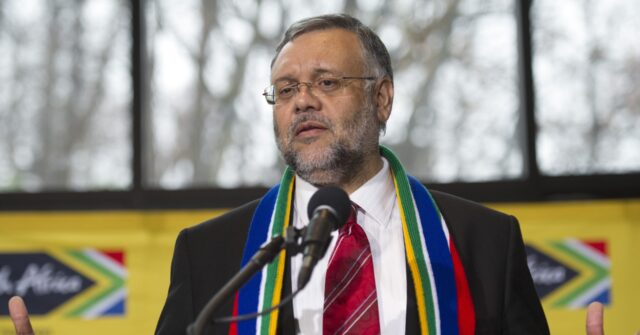South Africa is reassessing its approach to the Israeli-Palestinian conflict in light of Donald Trump’s election as President of the United States. The new South African ambassador to the U.S., Ebrahim Rasool, indicated that the country needs to tone down its rhetoric, as Trump may not be supportive of its current anti-Western foreign policy stances. In an interview with the Daily Maverick, Rasool acknowledged the complexities he would face in this new political environment and emphasized the need to align South Africa’s values with its economic interests.
Rasool articulated that while South Africa will continue its legal case against Israel at the International Court of Justice (ICJ) for alleged genocide, there are consequences to its more vocal policies. He noted that the government must be mindful of perceptions that they might be overreaching, suggesting a strategic shift to prioritize effective legal advocacy over loud public declarations. The ambassador’s remarks highlight a shift in South Africa’s foreign policy strategy as it navigates not only the challenges posed by a new U.S. administration but also its own economic goals.
One of South Africa’s primary concerns is the renewal of the Africa Growth and Opportunity Act (AGOA), which enables preferential trade access to U.S. markets for eligible African countries. Rasool acknowledged that South Africa’s foreign policy decisions, especially its support for Russia’s actions in Ukraine and various authoritarian regimes in Africa, have been at odds with American values and interests, threatening the continuation of AGOA. With the potential for significant economic implications, Rasool intends to make a strong case to Trump that maintaining and renewing AGOA benefits the U.S. as well.
The ambassador expressed a desire to foster cooperation with Trump and the U.S., emphasizing that South Africa is a more favorable trading partner compared to China. By framing discussions around peace and stability in the global context, Rasool believes he can find common ground with the Trump administration, particularly regarding mutual opposition to military conflict. He also proposed leveraging the influence of South African-born entrepreneur Elon Musk to illustrate the importance of trade with South Africa, especially in the realm of rare and precious minerals essential for technology and space applications.
Rasool is to navigate these complex dynamics while representing South Africa’s interests in a radically different political landscape than during his previous ambassadorship under Barack Obama. With his background as a moderate voice within the African National Congress, Rasool’s willingness to consider a more tempered stance on the Israeli-Palestinian issue indicates a pragmatic shift potentially motivated by economic considerations and the evolving geopolitical landscape.
The changing rhetoric and strategy of South Africa’s approach to international relations reflect the immediate impact that Trump’s presidency may have on foreign policy discourse. Rasool’s acknowledgement of the need for recalibration reveals both an understanding of the pressing realities of global politics and a readiness to adapt for the sake of national interests. As South Africa looks to carve out its position on the world stage, this shift underscores the necessity of balancing domestic priorities with the complex web of international relations amidst the shifting tides of global leadership.

